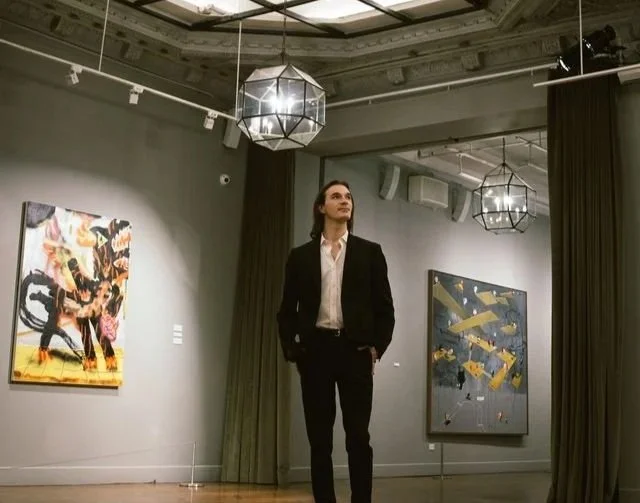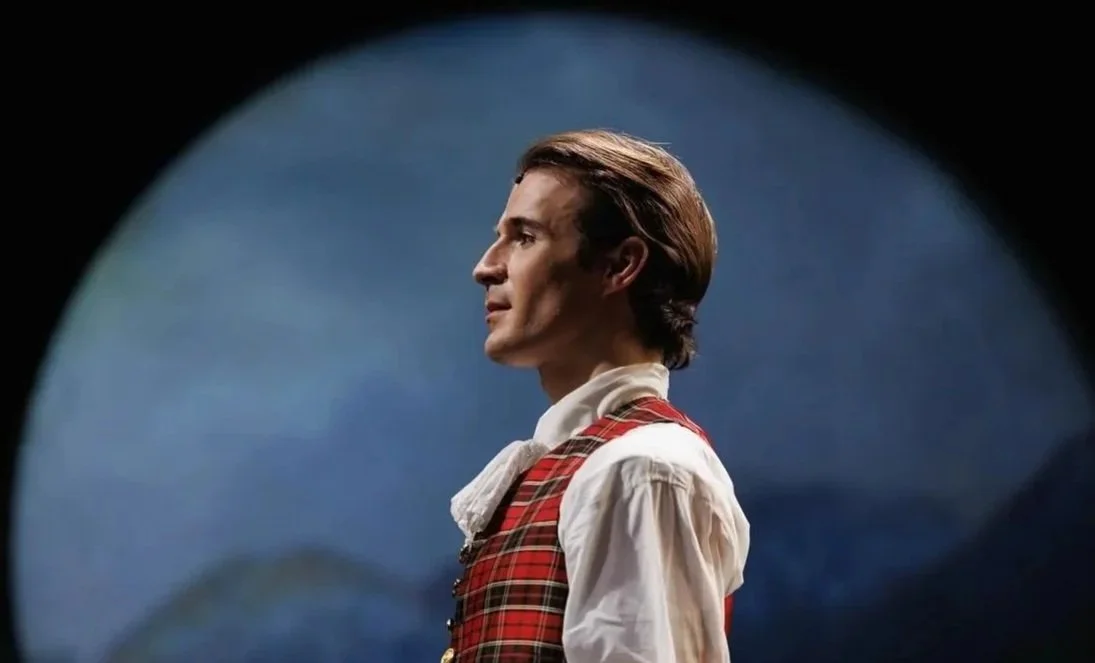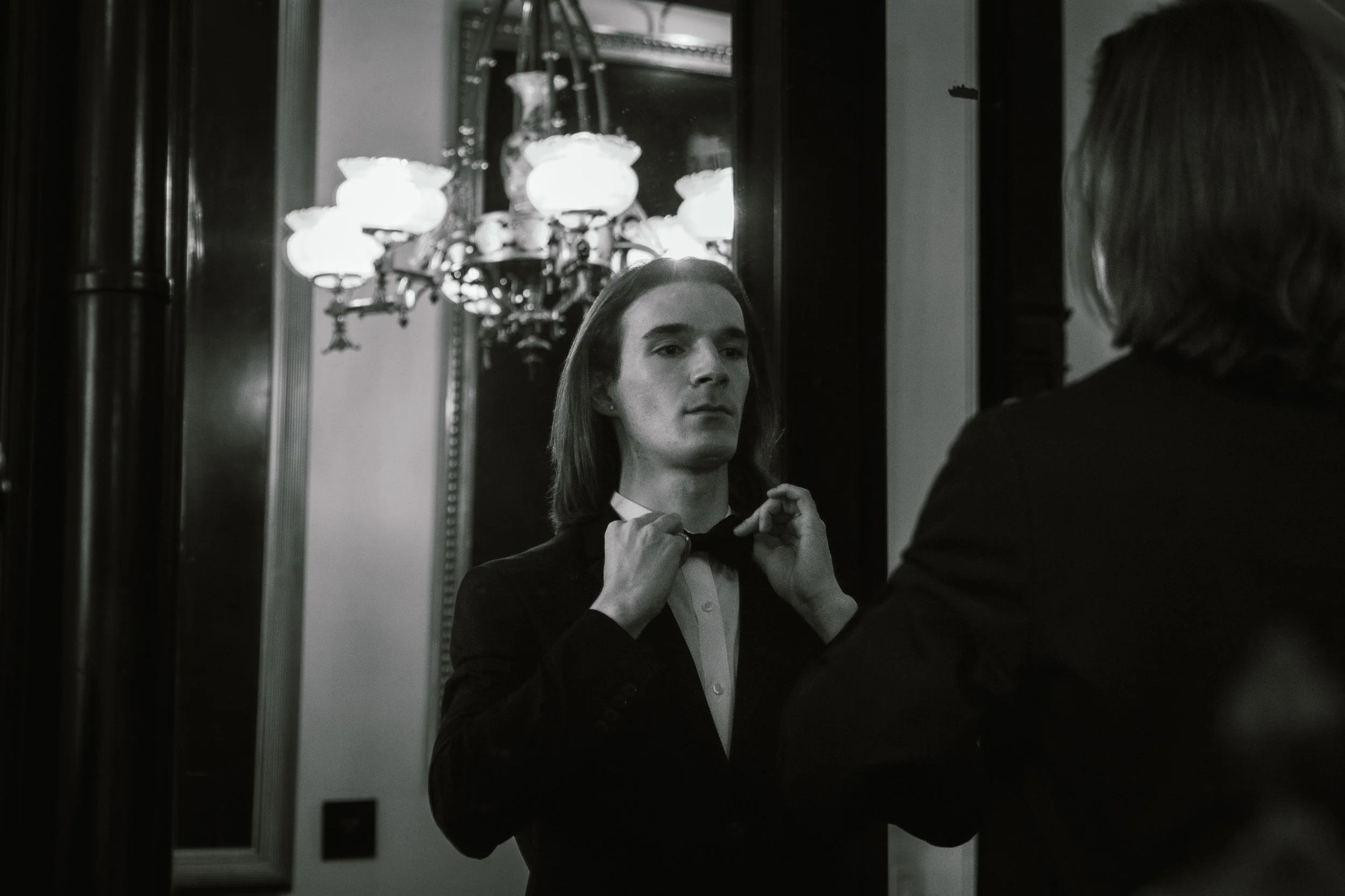
Richard Pittsinger
Tenor
“Such stunning vocal moments that we found ourself holding our breath.”
— Voce di Meche
-
Praised by Anthony Tomassini of The New York Times for his “winning singing and youthful bearing,” American tenor Richard Pittsinger is quickly establishing himself as a leading performer of both early and modern repertoire.
An artist of rare versatility whose performance experience spans music across four centuries, Pittsinger’s principal operatic roles to date include Lurcanio in Handel’s Ariodante with Boston Baroque, Céphale in Élisabeth Jacquet de La Guerre’s Céphale et Procris with the Boston Early Music Festival, Aminta in Handel’s Atalanta with Juilliard Opera, Polinesso in Jonathan Dawe’s Being Ariodante at the Italian Academy, Orfeo in Luigi Rossi’s L’Orfeo with Juilliard Opera, Lysander in Britten’s A Midsummer Night’s Dream with Juilliard Opera, and “The Rocket” in Laura Karpman’s Wilde Tales at the Glimmerglass Festival. Additional stage credits include Verdi’s Falstaff at the Aspen Music Festival (Dr. Caius), Handel’s Acis & Galatea (Damon & Corydon), Virgil Thomson’s The Mother of Us All (Andrew Johnson), and Offenbach’s Orpheus in the Underworld (Mercury). Recent stage credits also include Rameau’s Samson at Opéra Comique (Premier Juge/Un Convive), Telemann’s Don Quichotte at the Boston Early Music Festival (Grisóstomo), and excerpts from the title role in Rameau’s Platée and the ensemble of Verdi’s Un giorno di regno at the Garsington Opera Festival—where he subsequently won the esteemed Helen Clark Award. In addition, at the 2023 International Baroque Singing Competition of Normandy, Richard was awarded both the Young Artist Award and Audience Award.
Equally comfortable on the concert stage, Pittsinger has additionally served as tenor soloist with Atlanta Baroque, Ensemble Pygmalion, Les Arts Florissants, Charlotte Symphony, Musica Sacra, ARTEK, Central City Chorus, Trinity Baroque Orchestra, The Cecilia Chorus of New York, as well as Juilliard415. He has collaborated with, or appeared under the direction of, such musicians as Martin Pearlman, Eve Summer, Raphaël Pichon, Claus Guth, Paul Agnew, Louisa Muller, Christopher Alden, Mary Birnbaum, Avi Stein, Gilbert Blin, William Christie, Stephen Stubbs, Paul O’Dette, Stephen Wadsworth, and Gary Wedow.
For the 2025/2026 season, Pittsinger is thrilled to be performing frequently on both sides of the Atlantic. After a move to Paris, Pittsinger will be giving a solo recital tour throughout France and Normandy with Le Poème Harmonique. Then he will begin his residency with Le Jardin des Voix, performing in two short operas by Marc-Antoine Charpentier, Les Arts Florissants & La Descente d’Orphée aux Enfers—in which he’ll be performing the title role—and the oratorio, Il giardino di rose by Alessandro Scarlatti. Both projects will tour internationally throughout the 2026/2027 season. Pittsinger also looks forward to his debuts with Jupiter Ensemble, for their concert tour of Handel’s Theodora, and Vox Luminis, for their semi-staged production of Purcell’s The Fairy Queen. Back in the U.S. he will take on the role of Armidoro in Provenzale’s La Stellidaura vendicante with Boston Early Music Festival, bring in the holiday season with a handful of Messiah's with the Portland Baroque Orchestra, perform in a new concert version of Lully’s Carnaval with ARTEK, and make his Carnegie Hall debut in Handel’s Alexander’s Feast with the Oratorio Society of New York.
Pittsinger’s expressive singing and powerful high register has earned him widespread acclaim from various leading publications throughout the United States. During his recent appearance in Handel’s Ariodante, The Boston Musical Intelligencer noted that “perhaps the most praiseworthy work came not from the leads but rather from the secondary romantic pair…Pittsinger embodied the beautiful qualities of the Baroque tenor voice, demonstrating both an agility and lightness in the upper register not typically heard in modern operatic tenors.” Following a Messiah performance with the Charlotte Symphony, Artonmysleeve.net described how “his impact came sooner with supremely creamy accounts of the ‘Comfort ye, my people’…with soft floating glides that never strained his breath control.”
As a young treble, Pittsinger received early training at New York’s prestigious St. Thomas Choir School, recording or performing with the Orchestra of St. Luke’s under the baton of John Scott, the Dresden Symphony with Vladimir Jurowski and, alongside his father David Pittsinger, the Pittsburgh Symphony with Leonard Slatkin. He made his operatic debut at age 11 at the Castleton Festival, subsequently appearing at the Glimmerglass Festival.
A graduate of The Juilliard School, Pittsinger received a Bachelor and Master of Music under the tutelage of Elizabeth Bishop, performing in masterclasses with Renée Fleming, Isabelle Leonard, and Nicholas McGegan. He pursued additional studies at the Tanglewood Institute, Amherst Early Music Festival, Aspen Music Festival, Boston Early Music Festival, and the Garsington Opera Festival.
-
Renee Fleming’s SONGSTUDIO
“With stage presence to burn, tenor Richard Pittsinger displayed a mastery of Baroque style in ‘Tis Nature’s Voice’ from Henry Purcell’s Hail, Bright Cecilia; and equal ease in Benjamin Britten’s evocative ‘At Day-Close in November’ from the cycle Winter Words, to poems by Thomas Hardy.”
-seenandheard-international.com
“Pittsinger had strength, particularly in the upper register, hinting that within his lighter, lyrical voice, there’s some spin to ability that can be called upon when needed.”
-Operawire.com
JACQUET DE LA GUERRE | Cephale et Procris “Cephale”
Boston Early Music Festival
“The three male leads … displayed the ideal for each voice and acting type. Richard Pittsinger… led the opera from the demanding role of Cephale. The versatile tenor sang well in both solo and ensemble, matching his tone to the context. I most enjoyed his graceful trills and clear pronunciation of funky French consonants.”
– The Boston Musical Intelligencer
HANDEL| Atalanta “Aminta”
Juilliard Opera
“Richard Pittsinger made an excellent Aminta who had such stunning vocal moments that we found ourself holding our breath.”
-Voce di Meche
“As Aminta, Richard Pittsinger skated nimbly over his runs and demonstrated an impressive high extension.”
-Opera News
ROSSI | Orfeo “Orfeo”
Juilliard Opera
“Their essential love, despite threats from outside and their own doubts and insecurities, come through beautifully thanks to the winning singing and youthful bearing of the tenor Richard Pittsinger as Orfeo and the soprano Julie Roset as Euridice.”
-The New York Times
VERDI | Falstaff “Dr. Caius”
Aspen Music Festival and School
“Tenor Richard Pittsinger made a suitably prissy Dr. Caius.”
-The Aspen Times
News
Featured Livestreams
Media
Missy Mazzoli Does a Window Make a Home
Nicolas Renier L’Indifference Puni
HANDEL Folle dunque from Il Trionfo del Tempo e del Disinganno
Masters Recital - Richard Pittsinger, Tenor
Handel 1736 Atalanta HWV 35
Bach Benedictus from B Minor Mass





